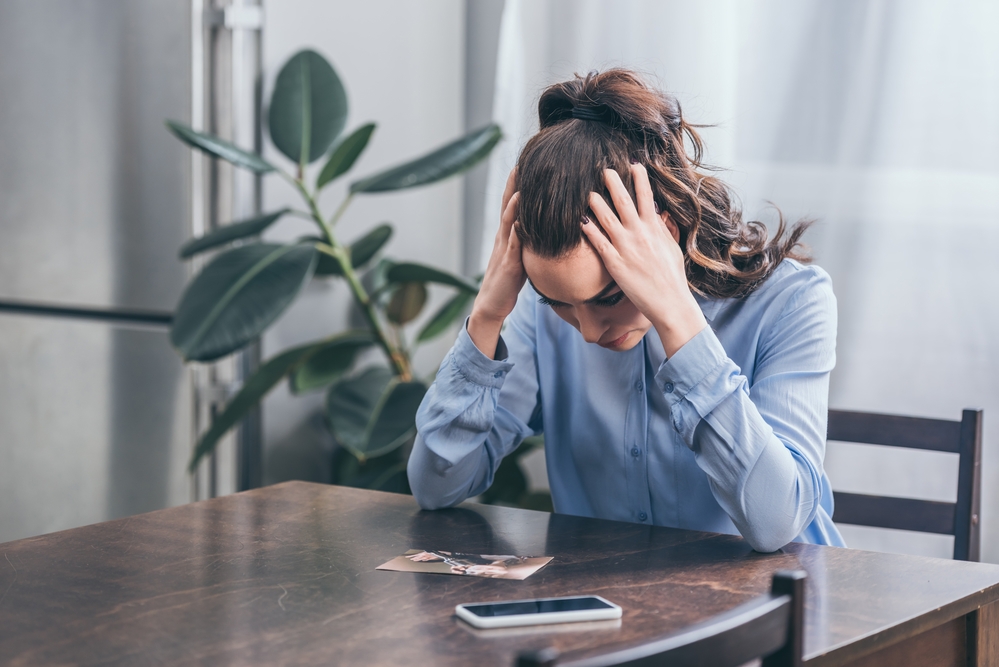If you’re one of the 38 million Americans (and counting) who experience migraines more often than they’d like to, then you probably know that the awful pain they bring is no walk in the park. Migraines aren’t just your regular headaches—they are defined as recurrent, severe pain (sometimes moderate) that typically affects one side of the head.
Migraines can last anywhere between four and 72 hours, but the worst thing about them (aside from the throbbing pain) has to be the fact that they are accompanied by nausea, vomiting, and light and sound sensitivity. Migraines tend to get worse when you’re exercising, and most often occur in people between ages 35 and 55.
If you suffer from migraines, chances are that you inherited them from a family member—in fact, more than 70% of people who get them have a family history of migraine. And while there’s nothing you can do to alter your genetics, you can make some changes in your lifestyle and have a say in how often you’ll get migraines and how much they’ll disable you.
Be Consistent in Your Daily Activities
One of the best ways to keep migraines at bay is to create a schedule and stick to it as much as you can. This means going to bed and getting up at roughly the same time every day—even on the weekends—exercising for at least 20 minutes per day, and eating your meals according to your schedule.
Why do you need a routine? Because your brain is sensitive to environmental changes, both internal (e.g. hormonal changes) and external ones (e.g. bright lights), and it’s these changes that notify your brain that the environment you’re in is threatening. Your brain then reacts to the threat by causing a migraine.
According to various studies and patient reports, it’s best to keep your life as predictable as possible in order to avoid these situations and the alarms going off in your head.
Keep a Track of Your Triggers
Migraines can be triggered by a whole number of things, so it’s logical that every person can be triggered by something different. So, for example, some people will get a migraine from flashing lights or dehydration, while others will get it from eating dark chocolate, exercising too much, or drinking wine.
Stress can also be the cause of these painful headaches, which is why it’s important to find a way to de-stress, either via engaging in your favorite hobby or practicing meditation. For women, hormonal changes and fluctuations in estrogen can play a huge role in whether or not they will start getting migraines. So, it’s not unusual for them to get migraines before their period, or during menopause or even pregnancy.
What’s important here is to recognize what your triggers are and to be able to react if you find yourself in a situation where you could possibly get a headache.
Use a Diary to Record Your Headaches
The best way to notice patterns and pin down your exact migraine triggers is to keep a journal in which you’ll record your headaches, their severity, frequency, and symptoms. Some people will opt for a smartphone app, others your old-school paper diary, but what you should do is write down everything you can about your migraines for about one to 3 months.
Record everything from what activity you were engaged in before you got a migraine to what you ate prior to developing pain. what you ate or did before the migraine. You should be able to recognize patterns soon enough and fully define your triggers.
Consider Taking Supplements
If you believe that you can’t get a handle on your migraines by simply eating better and tracking your triggers, then you might want to consider taking supplements for additional help. Studies have shown that riboflavin (vitamin B2), magnesium, and coenzyme Q10 can reduce your chances of having a migraine. In fact, one study showed that by taking coenzyme Q10 patients were able to the frequency of their migraines frequency almost in half.
Naturally, before you make the decision to start taking supplements, make sure to visit your doctor and talk about which supplement is right for you, and whether you need one at all. You can also ask them how to avoid your triggers and have them share some tips with you on how to manage a migraine once it strikes.
If you believe that you can’t handle migraines on your own, make sure to seek out medical attention. Dr. Best and the Neuroscience Center team are here to help you out with whatever you need. All you need to do is schedule a consultation.
Contact us:
Phone: 847-236-9310
Email: [email protected]








